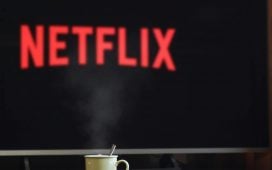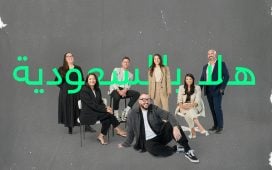The general consensus is that the regional market will end 2015 with a 10 per cent contraction on the previous year, says Omnicom Media Group’s Elie Khouri. What does this mean for the industry and for OMG, asks Iain Akerman
“When looked at from the perspective of the past two decades, this year has been one of the worst in what would usually be a normal cycle for the advertising sector,” says Elie Khouri, the CEO of Omnicom Media Group MENA. “Perhaps only the Gulf War and the 2008-2009 financial crisis match the current economic situation. If the current financial state extends to three years, the collective result will be as worse than the aforementioned periods.
“Do I think things are going to pick up in the months to come? I’m not too optimistic for the region. No one with their feet on the ground really anticipates a dramatic change for the better in the near future and the regional situation is further impacted by local market conditions.”
For those working in media and advertising, this might not be what you want to hear. But Khouri is not going to sweeten any pills. He’s not about to suggest next year could be any better either, although current growth in the Egyptian and North African markets is a source of encouragement in an otherwise bleak landscape.
To blame are regional conflicts, the low cost of oil and the fact that the growth engines of the world economy are starting to falter, bringing with them uncertainty and reduced investment.
“We’re not too optimistic about the state of the market for the next year,” admits Khouri, who as the regional head of OMG oversees the operations of OMD, PHD and Resolution. “It seems unlikely that the oil prices will pick up. Even if they were to rise again, it will be a long time before we begin to really feel the effects in the consumer market. The conflicts in Yemen, Iraq and Syria will continue to create economic and political challenges. As a result, we’re going to see less money being invested, companies becoming more risk-averse and the advertising and marketing sector continuing to feel the pinch, unless it can stimulate new growth by innovating further or increase confidence in the future and its ability to shape it. We think it’s likely the overall ad billings will go down by 10 per cent in terms of ad industry investments in 2016.”
The last time Khouri and I met circumstances were arguably better. It was late 2014 and we were discussing art. He had pointed to a red box in his office in Dubai Media City and stated that he believed it summarised “what we do in our business, which is making sense of chaos”.
The red box in question was Organised Chaos by Belgian conceptual artist Arne Quinze. It was, and is, one of numerous pieces of art, sculpture and design that pepper his office and the wider halls and corridors of OMG. Indeed, in many ways Khouri has helped make the company’s regional HQ more akin to an art gallery than the offices of a media powerhouse.
Yet the chaos analogy still works, even if for different and varied reasons.
“Given the economic climate, the biggest challenge everyone – clients, agencies, media – will face is answering this question: how do you grow in a shrinking market?” he says. “As brands continue to grow their digital media investments and digitise their business models as well, the industry’s focus on paid media – largely traditional – will need to be revisited. In terms of revenue sources, business model and services, the agency of the future will be significantly different to that of today.
“For our part, we will continue to intelligently address our clients’ needs and concerns by zooming in on what consumers really want. Clients’ needs won’t be met fully unless consumers’ are put first. This is one of the biggest and hardest lessons our industry is having to learn. Long gone are the days when marketers were fully in control of the brand and the message. The balance of power has forever shifted and it is transforming the way marketing is practiced.
“The other dimension that will really matter is that of precision and accuracy. We have often complained about data paucity in this market and we’re now racing towards the exact opposite. The point is knowing what to do with data and extract its full value. More than big, it’s about smart data. For us, smart data is the key to making the best decisions possible faster and delivering not just media value or even sales but profitability to our clients. Our focus has broadened and making sure we deliver on that promise will continue to be a challenge for some time.”
Globally, 2015 has not been the best year for OMD, with the agency failing to retain Visa’s global media account and unsuccessfully bidding for the Etihad Airways brief. Both were won by arch rival Starcom. However, Khouri insists the agency has been successful regionally, even if the agency’s new business wins have not been headline-grabbing. PHD meanwhile – as reported previously in Campaign – has witnessed an unprecedented 87 per cent growth so far this year.
“It’s true that many clients have used the changing market conditions and marketing trends to review their agency set-ups and priorities,” says Khouri. “In many cases, the result of such reviews have been in our favour. When you pitch as a network, you win as one but also lose as one. But sometimes clients manage to break their international alignments and retain their favourite agency. We had such a case with Daimler who selected to continue working with Resolution on their SEO in the Middle East because it had delivered such strong results.”
Are any internal changes being made, or have there been any redundancies?
“No,” replies Khouri. “This isn’t to say we’re not seeing natural attrition and churn. Still we use the opportunity of changes – accounts leaving or coming in – to realign talent and provide further growth opportunities for our experts. Far from scaling down, we are in fact recruiting across our two networks, especially in the areas of mobile, digital, data and content. There is further growth in store. You will see both OMD and PHD open their doors into new territories, largely at the express request of our existing clients. We are also investigating new partnerships on the ground as we realise some local markets are underserved.”
Which new territories?
“PHD will soon be in Egypt and OMD will open its doors in Kuwait next after a successful opening in Qatar. These markets have matured enough to warrant a direct operation for each network and more will certainly follow.”
Khouri once said that “art is a glimpse of hope. It’s a light at the end of the tunnel”. His personal art collection is spread and curated across homes in Dubai and Beirut, the offices of OMG, and a handful of holiday properties, with the rest kept in storage and rotated when deemed necessary. But he also sees power in the blending of art (be it commercial or otherwise) and science, and believes that the two will shape the agency of the future.
He is also far from pessimistic about the group’s prospects next year, despite the economic and political reality facing the region.
“As Omnicom Media Group MENA, do we feel confident about 2016? Absolutely, because we keep focusing on attracting and nurturing the best talent, activating them with the right purpose and the determination to succeed. We have some of the sharpest minds trained in engineering, coding and even artificial intelligence. With the help of our data scientists and analysts, we’re pushing the boundaries of programmatic media and econometric modelling.
“To be truly effective, they need the right purpose, so we work really hard to give our employees a sense of belonging and mission. In the past month, we’ve had a lot of discussion about why we do what we do. Some may say our job is to help connect brands with customers and others say we boost our clients’ profitability by targeting their key audiences with marketing messages. I believe we do a lot more. We entertain and educate people to help them make smarter choices. The average person on the street is more empowered to make decisions and can save their time because of the solutions we craft. At the end of the day, in a world of information overload and extreme busyness, that’s something people really value.
“While the somewhat gloomy market predictions may worry others, we’re excited. We live in exciting times so there’s little value in focusing on the doom and gloom. Times can be tough but as things change, we’re better equipped than ever to guide our clients, and ourselves, to growth. We’re in the best position to succeed and I’m certain we will grow even if not everyone else does.”









